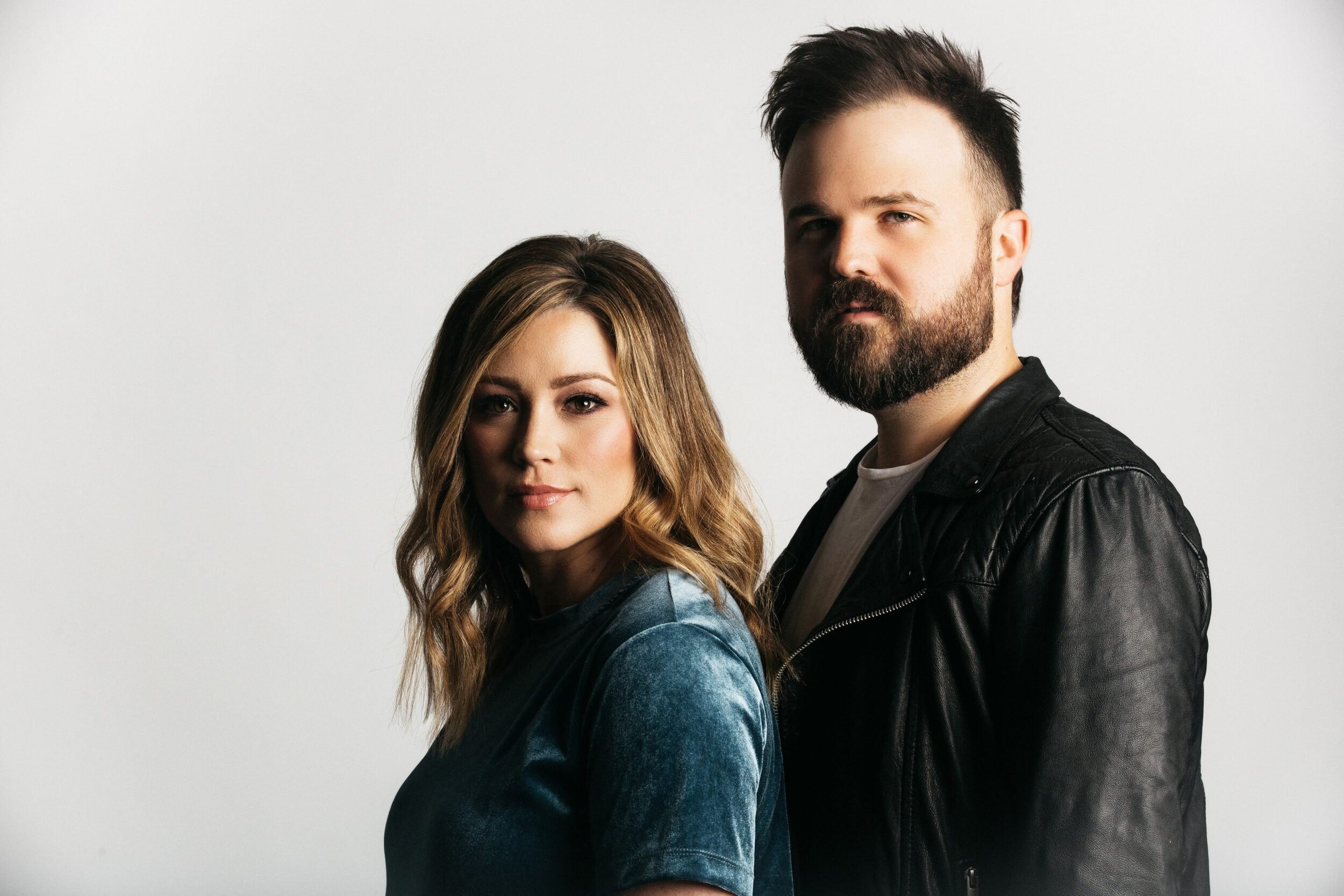Todd Dulaney
Todd Dulaney talks about keeping the main thing the main thing and how using the word of God in your songwriting yields inherent longevity.
Grammy-nominated Todd Dulaney sits down with Chris Baker encouraging you to be your authentic self, as that is what God wants you to be and how He will live His purpose through you.
Chris: You heard God call you away from professional baseball to Gospel music. What made you let go of what you could see to grab hold of what you couldn’t see?
Todd: When you find out why you’re alive and you get the feeling of this is why I’m here, it doesn’t matter how much money someone offers you to live outside of purpose. I feel so at home leading worship. You can’t run away from what you are meant to do.
Chris: I’ve seen you lead worship and you really prioritize worship over performance. How have you kept the main thing the main thing?
Todd: When I set out to do this, that was one of the things I promised to do: to stay centered. I told God, “I’m gonna take this genre of music and put it at your feet.” I said: “If You give it to me I promise I’ll give it back to you.” You cannot be elevated if you try to take from God and make it your own.
Chris: It’s so refreshing to hear you say that.
Todd: When it comes to songwriting, the word is the highest level of reality. If we try to write a song through our own interpretation, sometimes the word can become diluted because we’re giving it our perspective.
But when you write precisely what He said, then you don’t give room for perspective. His word will always accomplish what it was sent to do. When I’m long gone, these words will still stand.
Chris: I want you to tell the story behind Revelation 4 and that vision.
Todd: I wanted to write something about the throne room of God. I thought, this song is going to give people appreciation for what’s going on in Heaven right now. Everyone that touched this song read Revelation 4. The elders are casting down their crown at the feet of God. The angels are crying “holy holy holy.” There’s lightning and thunder around the throne. I said to God, “show me how to articulate this.”
Chandler Moore
Chandler Moore speaks on the inception of Maverick City and how racism is an issue of the Gospel.
Chandler Moore of Maverick City Music shares with Kristian Ponsford how he’s trusted in God’s timing over the years, the CCM and Gospel division, and he dives into tough topics with us: racism and prejudice inside church culture and the events of Summer 2020.
Kristian: Tell us about the church you’re involved in and Maverick City.
Chandler: My church is my priority, man. I believe in seeking and serving first the Lord’s church. We cannot be national or worldly without being locally planted. God has used His local church to rescue me out of some dark pits.
My church is my home. Mav City is my family. I almost get emotional thinking about it — Mav City has become so foundational and familial. The relationships I’ve made have literally changed and supported what God has done in me. The idea wasn’t: “We’re starting Maverick and we’re bringing people to it.” The idea started from the fact that we’ve brought people together through relationship already, and out of that relationship, we’ve become a family that God is using.
Kristian: I read on the Maverick City website that you all are “committed to deconstructing unspoken rules that exist in CCM and the Gospel world.” What are the unspoken rules you’re committed to deconstructing?
Chandler: I think there is a thing in the CCM and Gospel world that separates the music by color. If you’re black, you must be Gospel. If you’re white, you must be CCM. We don’t hold CCM and Gospel music to the truth of actually what type of song it is. That’s one unspoken rule.
The other is very new, that if you want to reach a diverse audience you must have a diverse group of people.
The toxic part of it is if you’re only doing it for the response, if the only reason I’m singing with my white brother or my Indian sister, is that so we can get a bigger audience, we’ve missed the whole point. We’ve missed the entire point of why God loves diversity.
Kristian: I’ve been deeply impacted, like all of us have, by recent events in the Black Lives Matter movement. I’m a white guy here in England who’s questioning how to go from simply being non-racist to anti-racist. How do we become anti-racist in church culture?
Chandler: I think we need to understand that this is an issue of the Gospel. We have to tackle it at the root. Paul was a Jew. And then God called him to people that didn’t look like him.
These issues aren’t new. It gives you more courage to attack it — these things are in the Bible that I believe. A solution to it can be: how did these people then address the issue? How did Paul address these issues? He blatantly and whole-heartedly stood against them.
I think we talk about the grace of Jesus but we don’t talk about the hardcore side of him. We have it laid out in the Bible. Unless you’re willing to lay your life down for it, it’s not going to be solved.
Kari Jobe & Cody Carnes
Husband and wife Kari Jobe & Cody Carnes share personal encounters with the Lord and their experience with worship leading during the pandemic.
Kari Jobe and Cody Carnes get vulnerable with Kristian Ponsford about the encounter with the Lord that’s locked up in their song with Elevation “The Blessing,” and they share their perspective on worship leading during this time of isolation.
Kristian: I’d love to start with talking about The Blessing. Could you share with us the backstory of how this song came to life?
Cody: We were in Charlotte with our friends at Elevation, and on our writing day with them, we wrote a whole different song with them at the start of the day. Around 6:00 that night when we were about to demo that song, Pastor Steven picked up a guitar and went in his own world for a bit and started with this idea around the Numbers 6 Priestly Blessing — different melody, different lyrics, but the theme was the same. So we started chasing that instead and we wrote the song in a few hours. It felt like heaven just fell in the room. After leading it that weekend, we started to see the response of people to the song all around the world.
Kristian: When I first heard it and watched the video, my jaw dropped. I don’t know if I’ve yet been able to put my finger on why it is just so unique and so powerful. Do you have insight into why you believe it’s so special?
Kari: Of course the Lord. He’s just so mighty and it’s just beautiful to watch people grabbing a hold of the truth of the word of God — of promises we’ve heard for a long time — but something Bill Johnson said that’s been so impactful is that when you write from an encounter that you’ve had with the Lord, that encounter gets locked up inside that song.
This last year, when our son Kingston was about 7 weeks old, a really traumatic thing happened at the park: the stroller got away from me and he ended up rolling down an 8-foot embankment upside down into a lake. I had to jump in after him and pull him out of the water. He was thankfully fine, but that experience was so traumatic. The conversations between me and the Lord for the next few days were so intense — I had been praying for protection and felt that the Lord had let me down. That experience made me dig deep into the word of God and hold the truths over these things that we declare over our families, our children, and our selves. Four of us wrote this song, but part of that song is part of this.
There’s just something about sharing an experience we’ve had with the Lord with other people. There’s power and authority in it.
Kristian: At the moment, worship leaders are just in a completely new world in light of COVID-19. I wonder if you could speak into the insecurity they’re facing right now and give encouragement to these leaders and songwriters.
Kari: I’m most moved in this season not by the quality of the music being led, but by the heart and the sound of worship coming from someone’s gut. I think this is a very confronting time for all of us — is our worship leading in the accolades of other people or is it just in our relationship with Jesus? I’ve missed people so much because I love to lead them in worship, but getting alone with the Lord and spending time on my face has been one of the most beautiful gifts we could’ve ever received during this time. So I think instead of thinking about all of the things that you miss, maybe just lean into the things that the Lord wants to do that maybe He’s going to miss when we go back to “normal.” I want these things to change my life.









